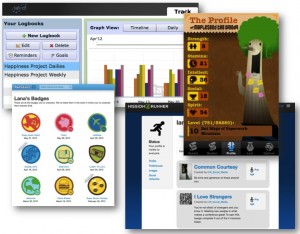Addiction to games like Everquest and World of Warcraft has serious consequences for some young people. More recently, serious consequences of addiction has been noted even among players of casual online games such as FarmVille. Though behavioral addiction (e.g., pathological gambling) are being included in the DSM, online addiction and addiction to games are not formally included yet.
I was curious about this and since I’ve been looking at the players of one casual gaming website for kids, Neopets, I just went ahead and asked some questions. I want to emphasize that this is just me being curious, not publishable research, because I did not have any sort of IRB here. I made a single post on the public Neopets forums asking: “I’ve been seeing a few people talking about being ‘addicted’ to Neopets. How do you know if you’re addicted?” I’ll highlight some of the responses here clustered using the Internet Safety Project questions for Online Game Addiction:
- Do you play compulsively?
I always have neopets open in a tab when I’m online_ I can spend hours playing. I’ve also tried to quit and never been successful. I also tend to spend a lot on money for neocash or plushies for keyquest. :/
- Do you play for long periods of time (often longer than you had planned)?
Signs of Addiction: You want to go to sleep but your laptop is right beside you with the neopets main page. YOu go on it for another “10 minutes”(What I’m doing right now XD) You go on neopets for 5 hours a day or more(Hmm…. might be me XD)
- Once online, do you have difficulty stopping?
Lol I’ve tried quitting and cutting down. I spend nearly half my day on neopets everyday. I haven’t missed a day since….. Uh….. oh! Two days in June because I was on vacation and didn’t have net access. And before that.. er.. I can’t remember lol.
- Do you play as often as you can?
I am on here every day. Sometimes I am on here for sixteen plus hours and other times I am only on here for a couple of hours.
- Do you sneak or violate family rules in order to play?
Im not “addicted” I just spend at least 4 hours a day on Neo if I can, usually more. Im very involved in the site however I have taken very very long hiatus which was horrible since I missed so much! I told my family the other day that I would have to run away if they ever “compromised” my account.
- Do you sacrifice real-world things for your online world?
I would wake up and tune out my family and just exist on Neopets. Neopets was negatively affecting my life. My family and I had a small hitch in our lives because of my time spent on Neopets. At some point though, I changed. Probably when I got iced a few years ago and never could get my account back. I avoided Neopets for awhile, because it upset me so much. But I had taken things too far. I finally came back, and got caught up in the NC stuff there for awhile, and I seriously wasted a LOT of money. I can’t say at some point I won’t go through this same thing again, but I hope now that I’ve been through it, I will recognize it if it begins to happen and pull myself away.
- Is your school or work suffering because of the time and energy you spend gaming?
Now the problem is that when I can’t handle the pressure of real life (like day before an exam), I rather escape it instead of trying to fix things.
- Have your sleep patterns changed since you became involved with online gaming? Are you staying up extremely late or getting up in the middle of the night to play?
When you need a 5 hour energy shot the next day because you stayed up all night playing neopets and only got a couple hours of sleep. *drinks 5 hour energy shot*
If you’d like to read more, more anonymized answers are available here. Again, these are all folks who are currently playing the game, none of these people have managed to quit yet. The tendency in these situations is to blame the player for lacking willpower to stop or just being silly. Nobody ever talks about the game designer bearing any responsibility (e.g., this). Yet, games are getting more and more sophisticated at leveraging psychology and the chemistry of addiction to get people to play more. Are we expecting too much of kids and young people to be able to avoid these pitfalls? What can we do to help people find a way out if they become trapped in the cycle of addiction? Who should be responsible for providing these services?
One last thing, I hate to end on a hopeless note. If you or a loved one are facing online or gaming addiction, there are some resources available here. You do not have to be alone!




